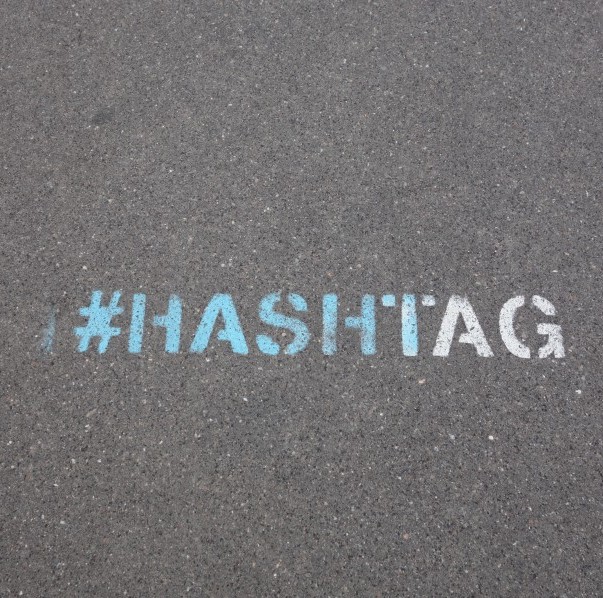When crisis hits, the most natural and human reaction is to want to help those who are suffering. After a hurricane, we send clothes and rebuild houses. After a terrorist attack, we mourn together and reaffirm our devotion to our nation. But after social injustice hits us, we don’t know what to do.
How can we help? What can a person in Seattle, Dallas or any town in America do to ease the pain of a mother grieving for her son, or fight a system built on a tradition of racism and injustice?
In this, as in most things, technology provides us with an answer and an opportunity.
The phrase “hashtag advocacy” has been derided, debunked and devalued. Countless bloggers, critics and media personalities have poked fun at people who tweet as a response to a crisis somewhere in the world. They say that 140 characters can’t change anything, that if you speak against injustice without immediately giving away all of your worldly possessions and devoting your life to a cause, that it doesn’t make a difference. That if you’re tweeting #IamTrayvon one day and #BringBackOurGirls the next, you’re flighty and just following a trend.
Fortunately, that’s not the case. We don’t tweet for justice for Trayvon Martin, the return of the stolen girls in Nigeria, and the crises in Ferguson, Mo., and the Gaza Strip because we’re being trendy. Social tweets are not an equivalent to a day trip to Forever 21.
We tweet because there is so much injustice, so much anger and pain and so many, many causes that need our help, that sometimes the best we can do is call attention by screaming out loud in the one way that is sure to be heard. We use hashtags to prove that we are not alone in our feelings, but that there are hundreds, thousands, millions of voices who believe what we believe, who are angered and appalled at the world around us. We use hashtags to prove that we cannot be ignored.
Hashtag advocacy leads to media stories, leads to organized protests, leads to attention, leads to change. Just ask the tweeters of the Arab Spring.
Hashtags pressured the cops to arrest George Zimmerman.
Hashtags forced the government to act in Nigeria.
Hashtags got celebrity chef Paula Deen fired.
Hashtags allowed the people of #Ferguson to tell their story even when the police tried to push the media out.
Is hashtag advocacy a solution? Of course not. It’s a tool, a way to bring together a chorus of voices to aid, assist and force action. It’s vocal protest, in 140 characters or less. Like all protest, it requires action. We can’t all fight for everything, but we can lend our voices to each other’s causes, to help each other in the fight.
Hashtags organize protests, on-the-ground movements that prove that people aren’t just willing to type, they’re willing to stand for what they believe in. Hundreds of thousands of people have shown solidarity for Trayvon Martin and Michael Brown in organized protests around the country. And because of those movements, because of hashtag advocacy, Zimmerman was arrested and tried (no comment on the result, jurors aren’t allowed to read Twitter), Congress is investigating the militarization of local police, and people with no voice are being heard.
Don’t believe that protests work? I think you and Dr. Martin Luther King Jr. need to have a conversation. You can meet him in Selma.
Tech is the great equalizer in more ways than one. It allows everyday people to bring attention to issues that may be ignored, speak truth to power, and record the history that others may not want us to see. King wasn’t marching for his health. He marched because he knew that the sight of thousands of Americans marching on Selma, the National Mall, and countless other places, demanding equal rights, was the first step in making serious, systemic change. He learned that from Ghandi.
Susan B. Anthony and Gloria Steinem marched for women’s rights, and you better believe they would have tweeted too. Because the leaders of the great movements of our time didn’t just march. They wrote letters, songs, articles, plays and poems. They ran races in defiance of Hitler and pumped Black power fists on the Olympic medal stand. They danced and painted and played one hell of a game of tennis. They used every voice, every talent and every avenue to fight for their rights. To fight for change.
Every great community organizer has marshaled the power of popular opinion in the most current and relevant form. Right now, that’s Twitter. It’s working. Who are we to argue?
Power to the Tweeple.
Kat Calvin is a social entrepreneur, writer and advocate for the empowerment of women, entrepreneurs and the black community. She is the founder of Michelle in Training, a mentoring and educational organization. You can follow her at @KatCalvinDC.

